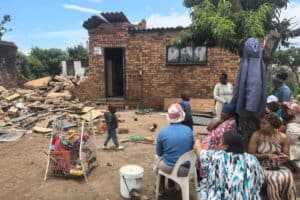Orchid has only told six people that she is a lesbian -- a subject she still struggles to talk about, trembling at the thought of her mother finding out.

“She told me I’m a lost cause,” said the 14-year-old from Los Angeles, who asked that her real name be replaced with that of her favourite flower.
“If I (tell her I) am gay, she’s not going to support me. She’s not going to do anything for me. She’s going to kick me out once she has a chance.”
This all-too-familiar dilemma for gay adolescents is belatedly addressed by Hollywood in the film “Love, Simon,” which was released last month to critical acclaim.
Starring Nick Robinson, the romantic comedy follows the story of Simon, an American teenager living in suburbia who is gay, but has yet to come out.
The film is the latest in a series of releases focusing in on themes relevant to America’s teenagers — such as Netflix’s “13 Reasons Why,” which told the tale of a high school student who committed suicide.
And while the movie eventually has a happy ending, it has also shone a light on the lives of teens whose coming-out stories are still being written.
Orchid says she is sure about her sexuality — every day, she thinks about coming out. But even so, she is not ready to tell the world how she feels.
“The homophobia that my mom has drilled into me kind of stays with me,” she half-jokes.
Orchid is not alone in her fears: coming out is a difficult decision for teenagers and adults alike, with many crippled with worry about what people will say.
– ‘Survival lie’ –
In “Love, Simon,” the protagonist holds off on coming out, convinced that his friends and family, although open-minded, will not support him.
His dilemma reflects the predicament that Harmony Sanchez, 17, faced in coming out as bisexual.
Unlike Orchid, Harmony’s mother was not very religious, and never showed any signs of homophobia. But nonetheless, coming out was no easy task.
“She asked me why didn’t you tell me earlier, why didn’t you want to talk about this with me,” Harmony remembered.
Family continues to be the main factor keeping people from coming out, Judy Chiasson, of the Los Angeles Unified School District’s department of human relations, diversity and equality, told AFP.
“Anybody who comes out is most likely to be a new minority in their own family,” she added, citing religious and cultural factors instilled by parents.
Meanwhile, Adam Hunt of The Trevor Project, an NGO focused on preventing suicide among LGBTQ youth, warned that family rejection can have tragic consequences.
“We do know that LGB youth who come from highly rejecting families are 8.4 times as likely to have attempted suicide as LGB peers who reported no or low levels of family rejection,” he told AFP.
Actor Nick Robinson, who stars in “Love, Simon,” before a screening in Los Angeles
While Harmony’s mother was accepting of her daughter’s sexuality, her grandparents were another story — and her biggest fear was that they would find out.
Now, her grandmother still has trouble understanding — and as for her grandfather, the topic is off limits.
Adrienne (not her real name), 15, also wanted to tell her mother she was bisexual, but her father’s reaction to the idea alone scared her off.
“I wouldn’t be able to have sleepovers. (My dad would) have to monitor my interactions with girls, all the same stuff he does for guys but with girls … what’s the point of coming out if it’s going to ruin my childhood because I’m not going to get to do all the fun stuff?”
In the end, Adrienne denied everything and insisted she was straight — a survival lie, as she put it.
– ‘Safe place’ –
All of the girls attend Daniel Pearl Magnet High School in Van Nuys, a suburb of Los Angeles. The school has just 365 students — very small in comparison to others in the city.
Harmony considers it a “really safe place for a lot of kids in the LGBTQ community”.
“A lot of the times if somebody is getting bullied it’s not necessarily staff who intervened, it’s other students,” she said.
Many schools in Los Angeles have clubs for LGBTQ students, and all school promote anti-bullying and offer mental health support — but in the end, they are “microcosms of the community they serve,” according to Chiasson.
Nonetheless, “the meter is inching toward deeper and broader acceptance,” she added.
In the corridors of Daniel Pearl, for example, there are colorful leaflets advertising a “Queer” party for young people in the community.
But a 2016 study by the NGO GLSEN showed that 85 percent of LGBTQ students consulted had suffered some type of verbal abuse, while 66 percent had experienced discrimination in the classroom.
Orchid doesn’t know if she’ll talk about her sexuality any more at school — and at home, it’s almost definitely a no, at least for now.
“I’ve actually always thought if I were to come out, it’d be when I left and I’ve done everything for myself,” she said.
“If you don’t accept me, then that’s your choice.”






